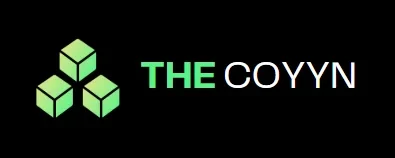The Rise of Silly Wankok: Understanding Internet Slang and Its Cultural Impact
In the era of digital communication, words, phrases, and memes emerge at lightning speed, reshaping how people interact and share humor. One such term that’s been circulating online is “Silly Wankok.” While it might seem nonsensical or even a bit baffling, it’s also an emblem of the quirky, boundary-pushing language that has come to define online culture. Understanding the origins, uses, and significance of terms like “Silly Wankok” offers a window into how language on the internet grows, evolves, and brings people together in unexpected ways.
The Origins of “Silly Wankok” and How Internet Slang Develops
“Silly Wankok” doesn’t have an established definition in traditional dictionaries, and its precise origin remains unclear. This type of slang often emerges organically from internet communities, spreading through social media, online forums, and messaging apps. Sometimes, it’s the product of a specific meme or trend that resonates widely; other times, it’s born from inside jokes within a community.
In the case of “Silly Wankok,” it may have started as a random, humorous phrase meant to evoke a sense of whimsy. Slang phrases with nonsensical elements aren’t new. Over the years, phrases like “yeet,” “poggers,” and “lolz” have gained traction as expressions of surprise, excitement, or amusement. Words without formal definitions are more likely to be playful and free from preconceived meanings, allowing people to use them in novel ways. “Silly Wankok,” for instance, has been applied to describe funny situations, random acts of silliness, or even something eccentric and unusual.
Why Do Terms Like “Silly Wankok” Gain Popularity?
The internet is a space where people crave novelty and excitement. As a result, fresh slang terms quickly gain popularity if they’re catchy and convey a shared sense of humor. Here are some reasons why terms like “Silly Wankok” spread so widely:
- Ease of Sharing: The term’s quirky and funny nature makes it perfect for meme culture, where absurd humor often reigns. Social media platforms and messaging apps make it easy to share these terms widely, creating a ripple effect that accelerates their popularity.
- Playfulness and Escapism: People often use the internet to take a break from the seriousness of daily life. Playful phrases like “Silly Wankok” are refreshing and allow people to express themselves in lighthearted, humorous ways.
- In-Group Language: Using niche slang like “Silly Wankok” can create a sense of community or shared identity. For those in the know, these phrases are more than just words—they signify that someone is part of a particular group or movement. Internet slang often functions as a kind of “in-group” language that separates those who are “in the loop” from those who aren’t.
- Creativity and Expression: Many online users enjoy the creative freedom that internet slang provides. Since a term like “Silly Wankok” lacks a strict meaning, it can be used flexibly in different contexts, allowing individuals to interpret and adapt it as they see fit. The fluidity of its meaning enables it to be more expressive and adaptable than standard language.
Exploring the Use of “Silly Wankok” in Online Communities
As with many slang terms, “Silly Wankok” can be found across various social media platforms, from TikTok to Twitter to Reddit. Users on these platforms have developed unique ways of incorporating the term into their online interactions. Here are some of the ways it might be used:
- As a Reaction: Someone might use “Silly Wankok” as a response to something unexpected or ridiculous, like a funny video or a peculiar situation. Similar to saying, “That’s wild!” or “So random!” it serves as a shorthand to express a mix of surprise and amusement.
- To Describe a Moment: When people post stories or pictures about an unusual event or a quirky moment in their lives, “Silly Wankok” can be used as a humorous label. It’s a way to add levity to a situation that might otherwise be described as embarrassing or nonsensical.
- In Memes and Image Macros: The phrase “Silly Wankok” lends itself well to meme formats, especially those that rely on visual humor or absurdity. Pairing a picture of a goofy animal or a clumsy moment with the caption “Silly Wankok” can amplify the humor of the image.
The Broader Impact of Internet Slang on Language and Communication
The creation and widespread use of terms like “Silly Wankok” reflect broader linguistic trends influenced by the digital age. Online communication has transformed how language develops, with new phrases and words surfacing almost overnight. This constant evolution shows how language can adapt to meet the needs and desires of internet users.
- Shortened Attention Spans: With rapid scrolling and short-form content dominating online spaces, internet slang often develops to communicate ideas quickly. A short, catchy phrase like “Silly Wankok” captures attention immediately, resonating within the confines of a tweet, caption, or chat message.
- Increased Flexibility in Language: Digital language is more flexible than formal language; it’s highly context-dependent and open to interpretation. Users can assign their own meanings to words, and phrases like “Silly Wankok” evolve through collective input, growing and changing as more people use them.
- Emphasis on Humor and Irony: Internet slang often leans toward ironic or absurdist humor. The quirkiness of a term like “Silly Wankok” plays into this, allowing people to express a sense of lightheartedness or tongue-in-cheek amusement. It also helps form a unique digital subculture defined by inside jokes and shared references.
- The Rise of Meme Culture: Internet slang is closely tied to meme culture, where images, phrases, and symbols are recycled and reinterpreted. Memes often rely on unconventional or playful language, as humor on the internet tends to favor the unexpected. “Silly Wankok” fits seamlessly into this culture, giving users a fun and adaptable phrase to use in their memes and posts.
Could “Silly Wankok” Enter the Mainstream?
While terms like “Silly Wankok” often begin as niche slang within certain internet communities, they sometimes break into the mainstream. Many slang terms that started online, such as “selfie” or “meme,” have since entered everyday vocabulary and are now recognized in formal dictionaries. However, not all internet slang has the same staying power; some terms fade as quickly as they appeared.
For “Silly Wankok” to enter the mainstream, it would likely need sustained usage over time, or endorsement by prominent internet personalities, influencers, or content creators. If a term achieves widespread popularity, it could make its way into the lexicon, similar to other internet-born terms. That said, the fate of “Silly Wankok” remains uncertain—it could disappear within months or become a lasting part of internet culture.
Read also: Coyyn: Transforming the Future of Digital Transactions through Blockchain Technology
The Future of Internet Slang and What It Says About Culture
The invention and circulation of phrases like “Silly Wankok” hint at the evolving role of language in the digital age. As internet culture continues to thrive, it’s clear that language will continue to change in ways that prioritize brevity, creativity, and humor. Terms like “Silly Wankok” showcase the community-driven nature of digital communication, where words are less about strict meanings and more about conveying moods, shared experiences, and inside jokes.
By exploring terms like “Silly Wankok,” we gain insight into how online spaces foster unique, culturally relevant language that both reflects and shapes our online interactions. These quirky phrases remind us that language is not only a tool for communication but also a means of entertainment, connection, and self-expression.
Whether or not “Silly Wankok” sticks around, it’s already served as a valuable piece of the digital linguistic puzzle. The next time you encounter a term like this online, remember that it’s part of a larger, playful dialogue—a dialogue that’s redefining language one meme, post, and phrase at a time.







